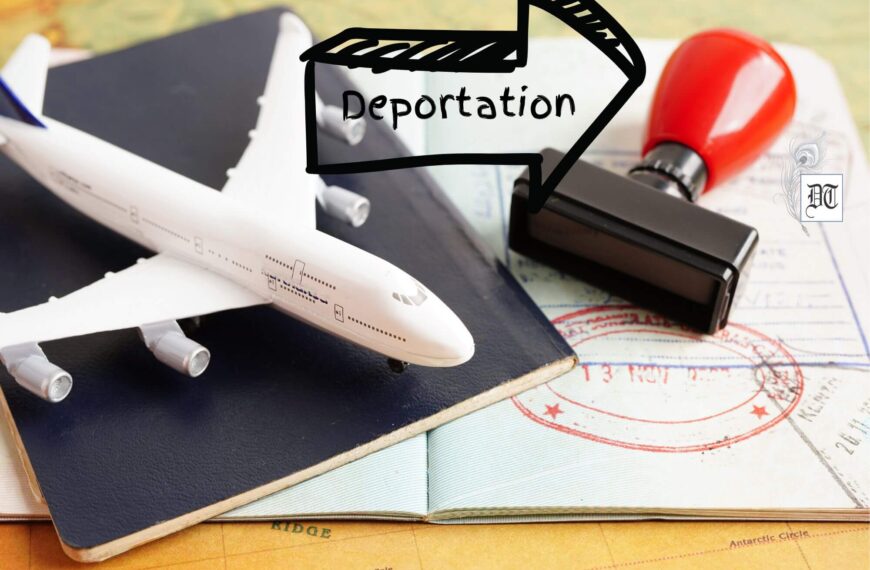It was Modi’s public statement during his Myanmar visit in September, which had led Dhaka to protest. India had always supported Myanmar in the international fora as Modi had blamed ‘extremist violence’ for the loss of lives in Rakhine. With Bangladesh public opinion inflamed over the violence against the Rohingya and the lack of India’s support, New Delhi had to undertake some damage-control, analyses Navodita, our Associate Editor, in the weekly column, exclusively in Different Truths.
 In the latest on the Rohingya crisis, India has announced it will be building pre-fabricated houses for Rohingya refugees who fled Rakhine State and may return under the bilateral framework signed between Myanmar and Bangladesh. This was agreed upon as part of a memorandum of understanding (MoU) signed between the foreign secretaries, with S. Jaishankar from India inking it on his visit to Myanmar. This visit was scheduled as a follow-up to decisions taken during PM Narendra Modi’s visit to Myanmar.
In the latest on the Rohingya crisis, India has announced it will be building pre-fabricated houses for Rohingya refugees who fled Rakhine State and may return under the bilateral framework signed between Myanmar and Bangladesh. This was agreed upon as part of a memorandum of understanding (MoU) signed between the foreign secretaries, with S. Jaishankar from India inking it on his visit to Myanmar. This visit was scheduled as a follow-up to decisions taken during PM Narendra Modi’s visit to Myanmar.
The MoU was signed between Jaishankar and Myanmar’s deputy minister for social welfare, relief, and resettlement, U Soe Aung. According to the Union Ministry of External Affairs, the government of India, under this MoU, aims to take up a project for housing so as to meet the immediate needs of returning people. This would be the second major social project to be undertaken by India in the restive Rakhine state. After the 2012 riots, India had announced $1 million aid for the reconstruction of schools in both Muslim and Buddhist areas of the state.
Incidentally, it was Modi’s public statement during his Myanmar visit in September – in the early days of the massive exodus – which had led Dhaka to protest. India had always supported Myanmar in the international fora as Modi had blamed ‘extremist violence’ for the loss of lives in Rakhine. With Bangladesh public opinion inflamed over the violence against the Rohingya and the lack of India’s support, New Delhi had to undertake some damage-control which included an additional statement acknowledging the ‘outflow of refugees’ in the region for the first time. There were more incremental changes in India’s public position on the regional crisis. India sent relief assistance for the refugee camps at Cox’s Bazaar under ‘Operation Insaaniyat’. A few days later, Bangladesh and Myanmar signed an agreement in November. Indian official sources disputed the fact that there had been any Chinese mediation which led to the agreement, asserting that both Dhaka and Nyay Pyi Daw had insisted on direct bilateral talks.
 India’s regional balancing has had to be delicate- since any perceived tilt towards Bangladesh could give more of an opening to China, which has given full support to the internationally-isolated Myanmar government. India has an additional disadvantage vis-à-vis China in Myanmar- that New Delhi is not as integral to the domestic peace process, unlike Beijing. Earlier in the month, India abstained on a resolution in the Geneva-based United Nations Human Rights Council backed by Bangladesh which condemned the human rights violations against the Rohingya community and asked the UNHRC chief to keep reporting on the ground situation. India did not give any public explanation for this vote, but it was among only nine countries that abstained on the resolution which was approved by 33 UNHRC countries.
India’s regional balancing has had to be delicate- since any perceived tilt towards Bangladesh could give more of an opening to China, which has given full support to the internationally-isolated Myanmar government. India has an additional disadvantage vis-à-vis China in Myanmar- that New Delhi is not as integral to the domestic peace process, unlike Beijing. Earlier in the month, India abstained on a resolution in the Geneva-based United Nations Human Rights Council backed by Bangladesh which condemned the human rights violations against the Rohingya community and asked the UNHRC chief to keep reporting on the ground situation. India did not give any public explanation for this vote, but it was among only nine countries that abstained on the resolution which was approved by 33 UNHRC countries.
India and Bangladesh historically, geographically, and culturally are so tied to each other that they cannot escape having significant bilateral interaction. It must be noted that India’s role in establishing an independent Bangladesh meant that, at least for a few years, India enjoyed a privileged relationship with the new state. India’s assistance to refugees from East Pakistan, as well as its relief and reconstruction aid, went a long way in setting a foundation for the country. New Delhi, by pulling its troops out of Bangladesh quickly after the 1971 Indo-Pakistani War, acknowledged the new state’s sovereignty and territorial integrity while refraining from interfering in each other’s internal affairs. But the assassination of Mujib-ur-Rehman in 1975, and the assumption of power by General Zia-ur-Rehman after a coup disrupted the healthy evolution of India-Bangladesh ties.
Bangladesh is surrounded on three sides by India along with a 4, 094-kilometer long land border. This results in near total geographical domination by India except for the 193-kilometer long land border that Bangladesh shares with Myanmar. India’s overarching presence in South Asia, in fact, has been a cause for concern for all of its smaller neighbours. Bangladesh is no exception. Like other states in South Asia, Bangladesh has tried to counter India’s regional hegemony through a variety of means. More significant are Bangladesh’s attempts to woo an extra-regional power, namely China, to prevent New Delhi from asserting regional supremacy in its relations with Dhaka. This strategy is not typical of Bangladesh’s foreign policy, but other states in the region- namely Pakistan and Nepal- have frequently used China to try to counterbalance India. Energy-hungry China views Bangladesh’s large natural gas reserves as a potential asset to be tapped.
 The collapse of Bangladesh’s political institutions has been quite rapid; it was once considered a moderate Islamic state with a functioning democracy. Domestic politics in India has also played a role in shaping bilateral relations. The issue of illegal immigration (or infiltration) into India from Bangladesh has been part of the BJP’s election manifesto for several years, while the other national parties tend to avoid this sensitive issue. The BJP has argued that the Congress-led UPA’s policy toward Bangladesh and illegal immigrants is driven by the need to appease minorities rather than India’s own national interests. Ineffective border management has also emerged as a major irritant in India-Bangladesh relations because of concerns about smuggling, illegal immigration, trafficking in women and children and insurgency. The rise of Islamic fundamentalism has further aggravated India’s relations with its neighbor. The economic basis of bilateral ties between India and Bangladesh remains weak and without any constructive agenda, making it even more difficult for the two states to move forward on other issues.
The collapse of Bangladesh’s political institutions has been quite rapid; it was once considered a moderate Islamic state with a functioning democracy. Domestic politics in India has also played a role in shaping bilateral relations. The issue of illegal immigration (or infiltration) into India from Bangladesh has been part of the BJP’s election manifesto for several years, while the other national parties tend to avoid this sensitive issue. The BJP has argued that the Congress-led UPA’s policy toward Bangladesh and illegal immigrants is driven by the need to appease minorities rather than India’s own national interests. Ineffective border management has also emerged as a major irritant in India-Bangladesh relations because of concerns about smuggling, illegal immigration, trafficking in women and children and insurgency. The rise of Islamic fundamentalism has further aggravated India’s relations with its neighbor. The economic basis of bilateral ties between India and Bangladesh remains weak and without any constructive agenda, making it even more difficult for the two states to move forward on other issues.
It is high time that Bangladesh also needs to return to its more secular, tolerant traditions of Islam that it used to espouse and to oppose Islamic radicalism more forcefully. While India has taken a positive step toward the Rakhine State, Bangladesh also needs to stop viewing India with a hegemonic status and work towards more economic cooperation which will be mutually beneficial.
©Navodita Pande
Photos from the Internet
#GlobalGanter #Bangladesh #Myanmar #Bangladesh #Modi #IndianGovernment #Rohingya #AntiViolence #UnionMinistry #MyanmarVisit #DifferentTruths






 By
By
 By
By
Here’s hoping sence prevails fast